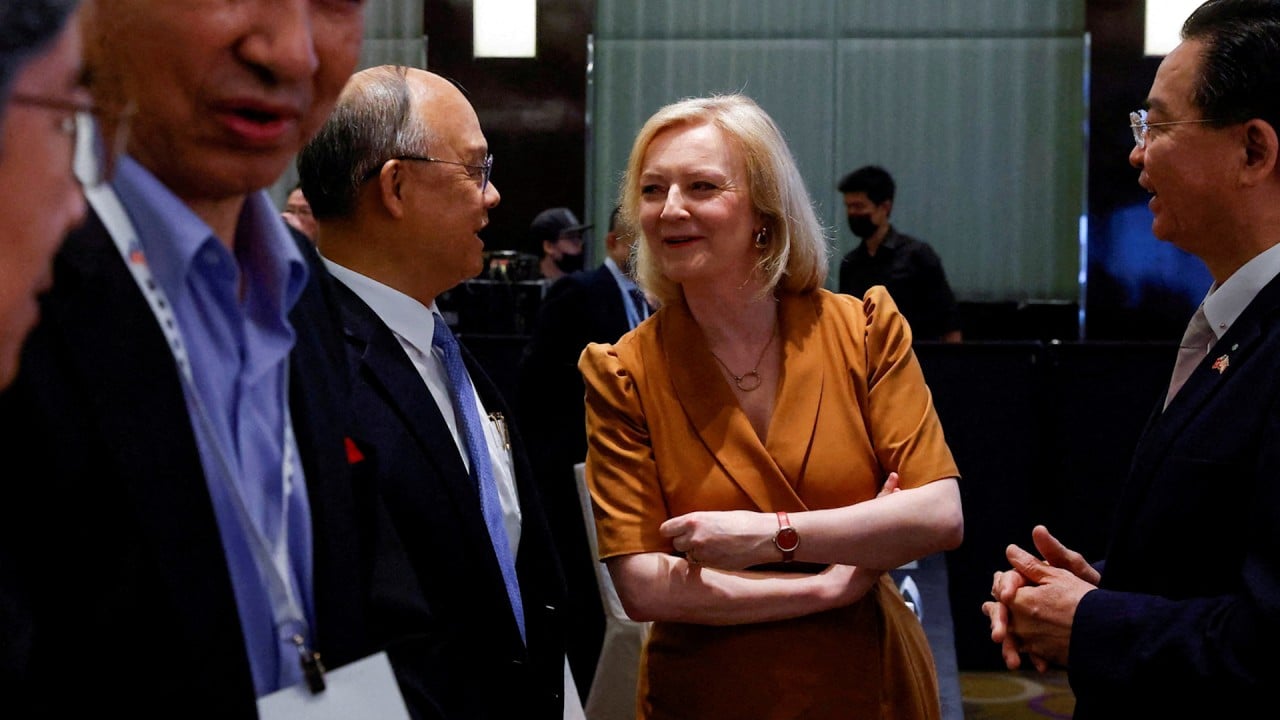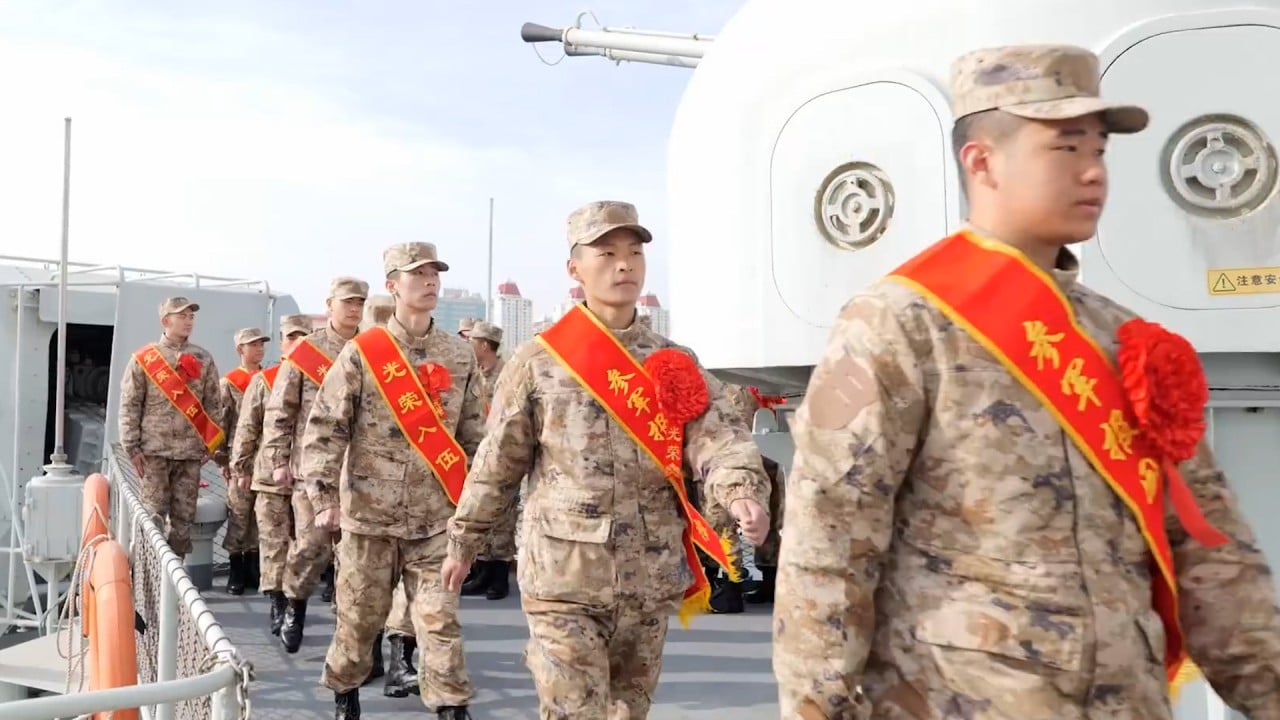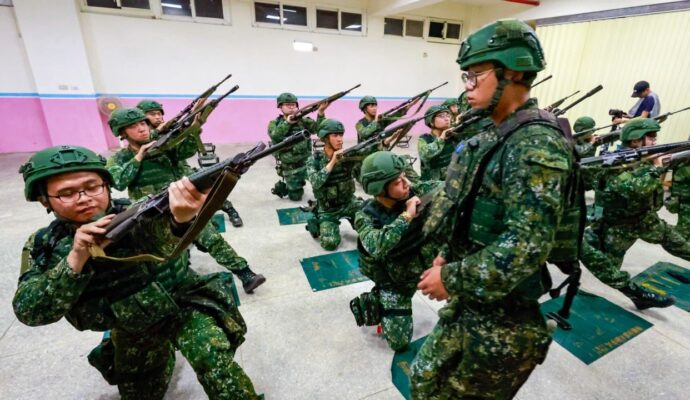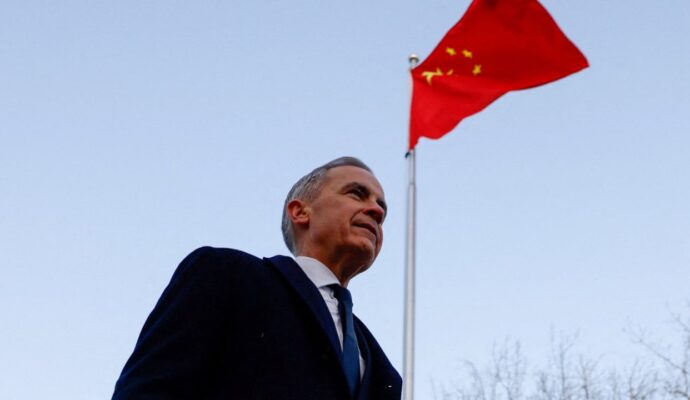Strategic ambiguity is a deliberately vague US stand on defending Taiwan should it face armed conflict with Beijing, which sees the island as a breakaway territory that must be reunified – by force if necessay.
Pressed by a lawmaker on whether Taiwan had indeed sought US protection given Beijing’s growing nuclear arsenal, Wu said: “Regarding the discussion of this issue with the United States, it is not suitable for me to make it public here.”
The “nuclear umbrella” refers to a guarantee by a nuclear-armed state to defend a non-nuclear ally.
While Wu declined to offer details on the US talks, he nonetheless emphasised that the nuclear umbrella issue was “very important”.
As Taiwan maintained a policy of not developing, stockpiling or using nuclear weapons, it would not tolerate any threats of a nuclear strike, he said.
“This is why we have communication with our good friends who have similar concerns about the issue,” Wu said, without identifying the parties involved.
Japan, South Korea, Australia, New Zealand, and the Nato countries are covered by the US nuclear umbrella. Taiwan, whose 1980s research programme to secretly develop atomic weapons was stopped at Washington’s behest, has long hoped to be included as well.
On Tuesday, a Taiwanese foreign ministry spokesman also declined to give details of the umbrella issue, including when the discussions began and what the progress had been.
“In the face of growing military threats from [mainland] China, it is our own duty to safeguard Taiwan … strengthen our defence capability and solidify our relations with like-minded countries and security partners … to ensure peace and stability in the Taiwan Strait and Indo-Pacific region,” spokesman Jeff Liu said in Taipei.
Military muscle-flexing by Beijing has spiked as Taiwan’s independence-leaning government led by President Tsai Ing-wen has deepened its relationship with the West, the US in particular. The United States, like most countries, does not see Taiwan as a sovereign state but is opposed to any forcible change to the cross-strait status quo.
The US’ closer ties with Taiwan have also been fostered by Washington’s spiralling rivalry with Beijing, especially over its rapid military expansion in the Indo-Pacific.
Some American lawmakers and think-tank experts have also proposed that Taiwan be placed under US protection.
The 2020 Taiwan Defence Act introduced by Republicans Senator Josh Hawley and Representative Mike Gallagher called for US assessment of the use of nuclear force to help defend the island against any nuclear threats from Beijing.
American political scientist John Mearscheimer, an international affairs professor at the University of Chicago, has also said that a nuclear umbrella would “create a powerful, conventional deterrent in Taiwan”.
It would send a clear message to Beijing that “if they are to attack Taiwan, it will escalate to the nuclear level”, Mearscheimer told the Taipei-based CommonWealth Magazine in an interview in December.
The White House has yet to express its stand on the issue.
Analysts in Taiwan said that since neighbours Japan and South Korea were covered by Washington’s Extended Deterrence Strategy – which included the nuclear umbrella – adding Taipei would create a stronger deterrent effect for Beijing.
Taiwan’s own choice to remain non-nuclear would also help it draw military support, according to Su Tzu-yun, senior analyst at the Institute for National Defence and Security Research, a government think tank in New Taipei.
“Taiwan has maintained a policy of not developing nuclear or other weapons of mass destruction, and therefore, other like-minded countries would be more willing to support Taiwan if it faced nuclear threats,” Su said.
“If Taiwan is included, it would provide Taiwan an extended form of deterrence that would greatly enhance its security.”
Beijing would then be more cautious in planning any attack on the island, nuclear or otherwise, Su added.
Wang Kung-yi, director of the Taiwan International Strategic Study Society, a Taipei think tank, said the West was increasingly concerned about Beijing’s military pressure campaign against Taiwan.
“If Taiwan is not able to come under US nuclear protection, a possible way is for the US to send nuclear submarines through the waters close to the Taiwan Strait as a kind of deterrence,” Wang said.
Taiwan’s high-level exchanges with US officials in particular have triggered unprecedented People’s Liberation Army warplane sorties, extended live-fire drills, as well as simulated precision strikes and blockades around the island in recent months.
Chang Yen-ting, a retired Taiwanese lieutenant general, said Taiwan was the central pivot of the so-called first island chain line of defence off the East Asian continental coast, and strategically important for the US to retain its influence in the western Pacific.
“It would help to undermine the Chinese communists’ efforts to extend their forces to the western Pacific if Taiwan was under the nuclear umbrella,” Chang said.
But Chang also sought to allay nuclear assault concerns, given how close Taiwan sat to mainland China. “It is unlikely for Beijing to use nuclear weapons to attack Taiwan, given the radiation spillover problem and the proximity of Taiwan to the Chinese mainland,” he said.
According to Chang, what Taiwan needs most is to acquire more advanced US military hardware, like F-35 fighter jets, P-8 anti-submarine aircraft and other weapons, to counter Beijing’s latest lines of weapons, like the emerging J-31 fifth-generation stealth fighter.
“Taiwan’s priority should be to get more advanced and effective weapons instead of seeking to be incorporated into the nuclear umbrella,” he said.
Chieh Chung, a security analyst at the National Policy Foundation, a think tank affiliated with Taiwan’s main opposition Kuomintang party, said becoming one of the US’ nuclear umbrella allies might be wishful thinking for Taiwan.
“Taiwan and the US do not have a mutual defence agreement and those under the umbrella are allies Washington has committed to defend in line with their mutual defence treaties,” Cheih said.
Moreover, even with such defence agreements, the US had not totally committed to using nuclear weapons to defend allies from nuclear attacks, he noted.
“Take South Korea, for example,” Chieh said. “The two sides have had a mutual defence treaty for close to 70 years but, until today, the US has not entirely committed to using nuclear weapons to help defend South Korea in the event of a nuclear attack from North Korea.”
While the US was concerned about the risk of a potential cross-strait war, it continued to maintain a policy of strategic ambiguity on the issue, Chieh noted.
“This is because Washington is worried that if it changes its strategic ambiguity policy into strategic clarity, it could offer a blank cheque to [Taiwan’s] pro-independence supporters who could be encouraged to breach Beijing’s red line, resulting in the Chinese communists sending forces to attack Taiwan.”



